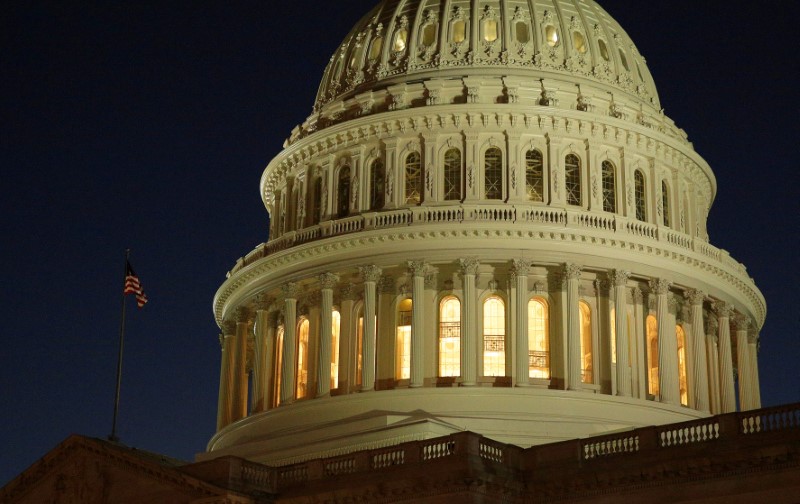By Patricia Zengerle
WASHINGTON (Reuters) - Democrats in the U.S. House of Representatives introduced a new version of a Russia and Iran sanctions bill on Wednesday, hoping to send a message to President Donald Trump to maintain a strong line against Moscow.
Seeking to force Republican House leaders to allow a vote, Democrats on the House Foreign Affairs Committee introduced legislation unchanged from what passed the Senate by 98-2 on June 15 but has been stalled ever since.
While the new bill is identical to what the Senate passed, it will be labeled as House legislation to avoid a procedural issue that prompted House Republican leaders to send the measure back to the Senate.
However, there was no sign of support from Trump's fellow Republicans, who control majorities in both the House and the Senate and control what legislation comes up for a vote.
AshLee Strong, a spokeswoman for Republican House Speaker Paul Ryan, dismissed the Democrats' action as "grandstanding."
The measure was introduced by House Democratic Leader Nancy Pelosi and Representatives Steny Hoyer, the No. 2 House Democrat, and Eliot Engel, the ranking Democrat on the House Foreign Affairs Committee.
Democrats have accused House Republicans of stalling the sanctions package because of Trump administration concern about provisions setting up a process for Congress to approve any effort by the president to ease sanctions on Russia.
Trump's attempts to mend relations with Russia have been hindered by allegations that Moscow interfered in the 2016 U.S. election and colluded with Trump's campaign. Russia denies meddling and Trump says there was no collusion.
The issue has become even more heated since emails released Tuesday showed that Donald Trump Jr, the president's eldest son, eagerly agreed last year to meet a woman he was told was a Russian government lawyer who might have damaging information about Hillary Clinton, the Democratic rival in the 2016 presidential election.
Lawmakers and aides said news of that meeting, and the failure to disclose it, added new urgency to the push to pass the Russia package.
"DILLY-DALLYING"
House Republican leaders said they had not taken up the original Senate bill because it violated a constitutional requirement that all legislation affecting government revenues originate in the House, known as a "blue slip" issue. Democrats and some Republicans who backed the bill scoffed, saying the problem could have been quickly remedied.
"Dilly-dallying around about the blue slip issue was just a ridiculous waste of time. We could have fixed it in five minutes," Senator Bob Corker, the Republican chairman of the Senate Foreign Relations Committee, told reporters.
The Senate changed the bill to address that issue, but also tweaked it in a way that Democrats said weakened a provision requiring Congress to approve any effort by the president to ease sanctions on Russia.
The new bill introduced on Wednesday would eliminate that change to allow House Democrats, as well as Republicans, to force a vote on a resolution of disapproval of any effort to ease Russia sanctions.
"I don't believe that having the president's party in a position to protect him from any oversight is good policy for our country," Hoyer told reporters.
Ryan told a news conference he wants to move a strong bill regarding sanctions on Russia as quickly as possible but that the legislation still faced procedural and policy hurdles.
The U.S. energy industry has been lobbying against the bill and some Republican House members, particularly from oil-producing states, have said they might want changes.

The Russia sanctions legislation was written as an amendment to a bill imposing new sanctions on Iran over issues including its ballistic missile program. Besides establishing the review process, it puts into law sanctions previously imposed on Moscow via presidential executive order and introduces new sanctions.